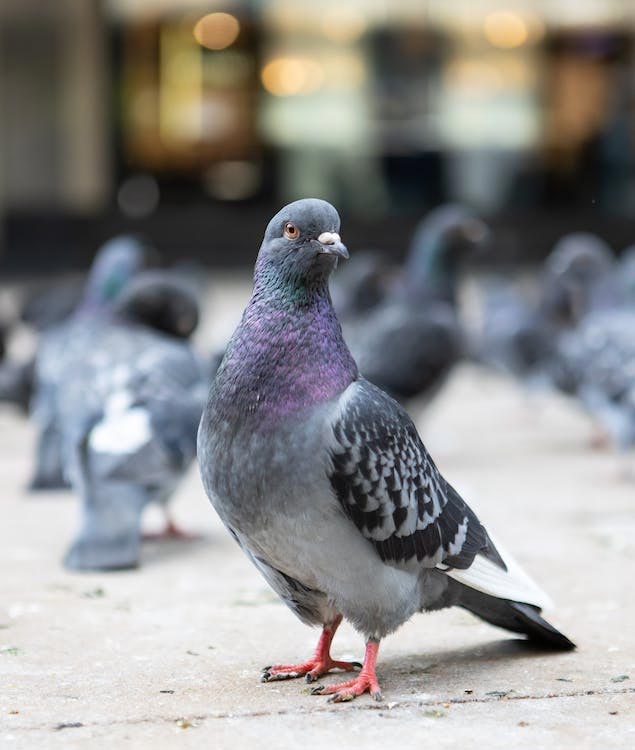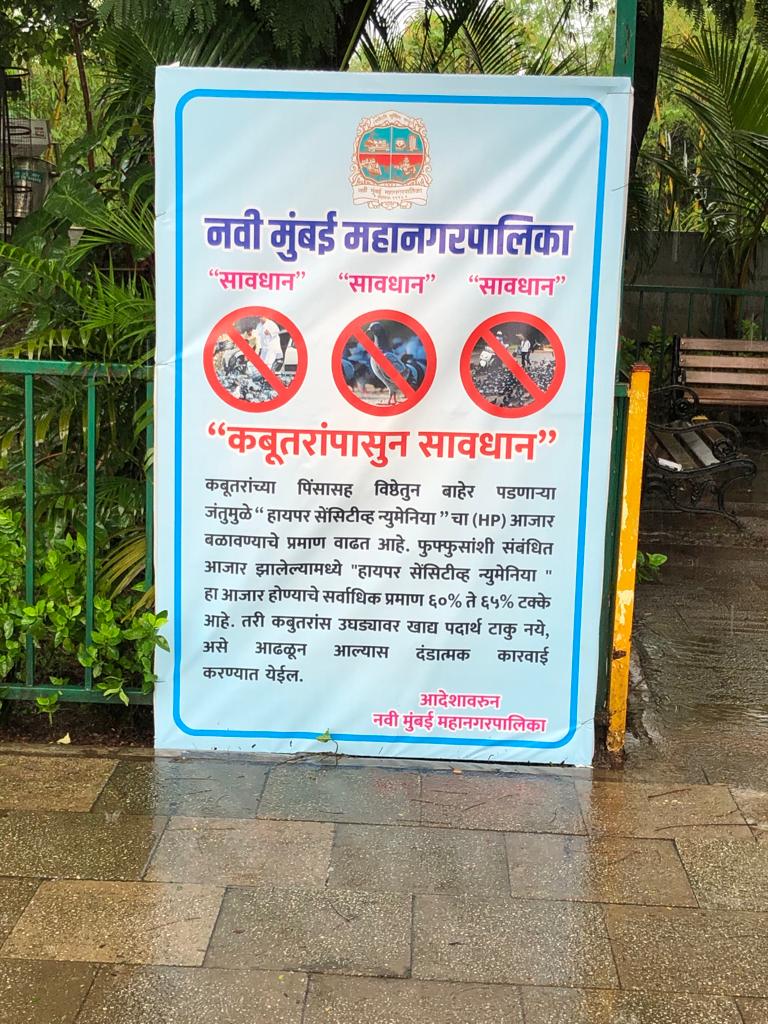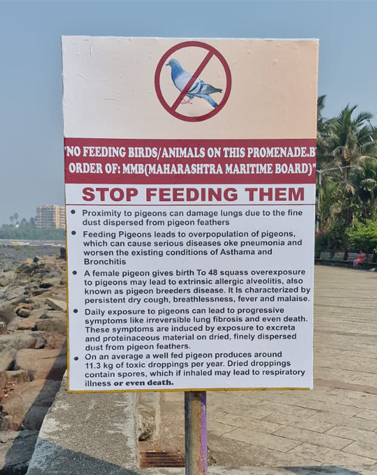
Pigeons, often regarded as the gentle urban birds, are more than just a familiar sight in our cities. They have become a common presence in metropolitan areas, but what many people don’t realize is that pigeons can pose a significant threat to human health. Their seemingly benign presence can lead to various health hazards, with pigeon droppings being a primary concern. In this article, we will explore the health risks associated with pigeons, focusing on the dangers of their droppings, respiratory problems, diseases they can spread, and offer practical solutions to mitigate these risks.
The pigeon population in India (especially the species Columba Livia) has increased by 150% in the past 2 two decades alone.
Some reasons for the increase in pigeon population include:
The increase in pigeon population poses a threat to both urban biodiversity and public health. Pigeons can congregate in large numbers at feeding areas and leave droppings everywhere, which can be a health hazard. Their droppings can cause more than 60 diseases.
Pigeon droppings may appear harmless, but they can harbour a multitude of health hazards. Here’s how they can affect human health:
Exposure to Pigeons can cause lung diseases, including:
– Hypersensitivity pneumonitis
– Bird breeder’s lung
– Histoplasmosis
Respiratory Problems:
Pigeon droppings contain allergenic proteins that can become airborne when they dry. Inhaling these particles can trigger allergic reactions, leading to respiratory problems such as asthma, bronchitis, and allergic alveolitis (bird fancier’s lung). Vulnerable individuals, like children and the elderly, are at higher risk.
Histoplasmosis:
Pigeon droppings are a breeding ground for the fungus Histoplasma capsulatum. When disturbed, the fungus spores can become airborne, posing a risk to individuals who inhale them. Histoplasmosis can cause flu-like symptoms and, in severe cases, lead to respiratory distress and other health complications.
Apart from the dangers of their droppings, pigeons can carry and transmit various diseases, some of which include:
Salmonellosis:
Pigeons can carry and spread Salmonella bacteria, which can cause food poisoning and gastrointestinal issues in humans.
Cryptococcosis:
This fungal disease is associated with pigeon droppings and can affect the central nervous system, particularly in individuals with weakened immune systems.
E. Coli Infections:
Pigeon droppings can also carry Escherichia coli (E. coli) bacteria, causing severe gastrointestinal illness when ingested or coming into contact with contaminated surfaces.
Chlamydiosis:
Pigeons are known carriers of Chlamydophila psittacine, which can lead to a respiratory disease known as psittacosis in humans.
Symptoms of pigeon – lung diseases include:


Now that we understand the potential health hazards associated with pigeons, it’s important to explore solutions to mitigate these risks:
Pigeon Deterrents: Implementing bird deterrents such as spikes, nets, and electronic repellent devices can help keep pigeons away from your property. Install bird nets at home to minimize exposure to pigeon droppings.
Proper Cleaning: Regularly clean pigeon droppings from surfaces and wear protective gear, including masks and gloves, when doing so to minimize the risk of exposure.
Maintain Hygiene: Practice good hygiene and handwashing, especially after coming into contact with areas contaminated by pigeon droppings.
Seek Professional Help: If pigeon infestations are severe, consider hiring professional pest control services to handle the issue safely and effectively, including fumigation.
Public Awareness: Educate communities about the risks associated with pigeons and encourage responsible feeding practices so as not to increase pigeon populations.
While pigeons may seem harmless, they can indeed pose significant health risks to humans. Pigeon droppings and the diseases they carry can lead to respiratory problems and other health issues. By taking proactive steps to deter pigeons and maintain cleanliness, we can minimize the health hazards associated with these birds, ensuring a safer and healthier urban environment for everyone.

This website is not a comprehensive one. We have just made a small beginning. We have provided a few links to other related websites & organisations that we find are involved in promoting Organ Donation awareness for many years.